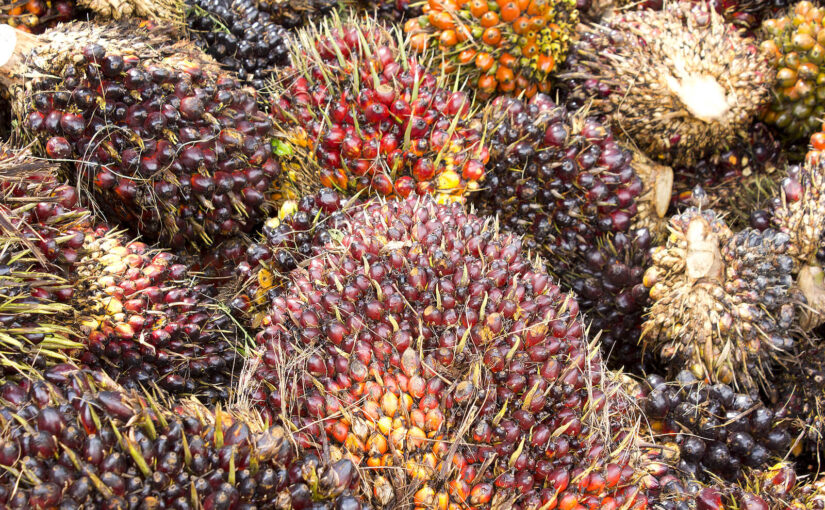Palm oil is an infamous vegetable oil that is used in the production of many food, cosmetics, and toiletries.
Unfortunately, palm oil also has a huge impact on the environment, with its ties to deforestation and unethical production.
This guide will delve into palm oil, why it’s considered bad for the planet, and the steps you can take to avoid it.
What is palm oil?
Palm oil is an edible vegetable oil that comes from the fruit of oil palm trees. It was originally native to Africa but was brought to South-East Asia around 100 years ago. Nowadays, Indonesia and Malaysia make up 85% of the world’s palm oil production.
How is palm oil extracted?
There are two types of palm oil that are used in products – crude oil that comes from the fleshy fruit of the oil palm trees, and palm kernel oil that comes from crushing the stone in the centre.
While this used to be done by hand in the small villages where palm oil traditionally grew, huge mills now carry out the palm oil production process.
Why is palm oil popular?
There are many factors that continue to make palm oil a popular choice for manufacturers and consumers.
Fruit from the oil palm tree can be harvested all year round and has a lower production cost compared to other frying oils. The growing demand for palm oil over the years has also boosted the incomes of many communities, particularly in rural areas.
What is palm oil used for?
You will find palm oil in a number of everyday products, from the food you eat to the makeup you wear.
It blends well with other frying oils so is a popular choice for baked goods, especially packaged pastries. You may see palm oil listed as sodium Laureth sulfate in foods, including ice cream, peanut butter, vegan cheese, chips, and even baby formula.
Away from food, palm oil also provides the foaming agent in many soaps and shampoos. It can be used as a cheap raw material for biofuels, and even as an adhesive to bind together particles on fibreboard.
It’s been estimated that around 50% of products in UK supermarkets contain palm oil, making it likely that palm oil is in at least one thing that you use, every single day.
Why is palm oil bad for the environment?

Recent years have seen palm oil facts shared widely, including details on how palm impacts the environment.
Palm oil’s quick rise in popularity saw many communities in areas surrounding the equator rush to plant oil palm trees. This meant cutting down acres of native trees, leading to mass deforestation caused by palm oil production – palm oil is the leading cause of orangutan extinction.
Deforestation not only damages the immediate surrounding ecosystem but also contributes to the number of greenhouse gases in the atmosphere. Greenhouse gases prevent heat from the Earth from escaping which gradually warms our planet and causes climate change.
A study in 2020 found that palm oil plantations in Southeast Asia alone contributed up to 0.8% of total global greenhouse gas emissions – almost half that of the aviation industry.
Many oil palm trees plantations are planted on previous carbon-rich peat swamps. Draining these areas also releases a considerable amount of carbon dioxide (a powerful greenhouse gas) into the atmosphere.
Sustainable palm oil
Many consumers and manufacturers are now looking towards sustainable palm oil as an alternative, though this has also been met with some controversy.
Some palm oil producers have committed to less deforestation, including no planting in peatland and setting areas aside for conservationism. Elsewhere, companies have also been called to treat oil palm farmworkers more ethically.
Consumers are also calling for more transparency when palm oil is used in the products they purchase, prompting many manufacturers to work with palm oil producers to commit to long-term changes in the industry.
In 2004, the palm oil industry set up the Roundtable on Sustainable Palm Oil (RSPO), which enabled their members to have their palm oil ‘certified sustainable’. In 2018, RSPO members were banned from destroying forests, however, there is some debate about whether this new rule is being legally enforced.
Organisations like Green Peace have questioned the validity of sustainable palm oil, arguing that many big brands are still unaware of where their palm oil comes from and how sustainable it is. The organisation has called for manufacturers to use less palm oil in their products or, if they have to, only purchase from suppliers that are 100% deforestation-free.
If you are looking for ways to further minimise your environmental impact, Forge Recycling can help you and your business adopt a responsible waste management plan.
